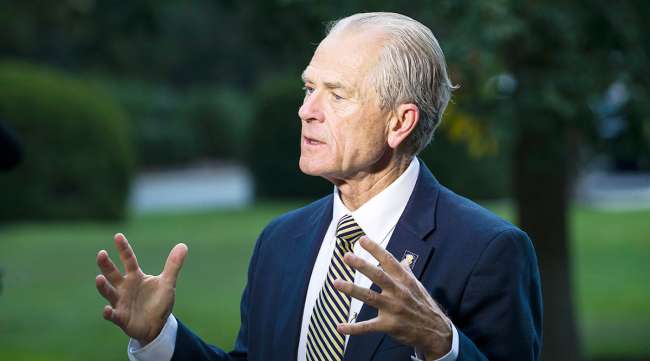Associated Press
Universal Postal Union Rejects Trump’s Favored Reform Plan

[Stay on top of transportation news: Get TTNews in your inbox.]
In a showdown Sept. 24 at a Universal Postal Union meeting, countries rejected the Trump administration’s favored approach to an international mail problem that is making the U.S. consider leaving the 145-year-old body.
The meeting in Geneva this week is shaping up as a test of the Trump administration’s diplomatic clout. Trump trade envoy Peter Navarro appealed “personally” Sept. 24, Day 1 of the emergency meeting, for countries to support Washington’s reform push.
UPU’s “extraordinary congress” is only the third since the 192-member intergovernmental body was created in 1874 to smooth international mail deliveries.
The Trump administration insists that some postal carriers, such as China’s, aren’t paying enough to have foreign shipments delivered to U.S. recipients and argues the current international mail system is ill-suited for the 21st-century boom in shipping because of e-commerce.
“The mission here today is to retool this system for the brave new world of e-commerce,” Navarro said in brief remarks to delegates. “As we say in America, ‘You know what to do.’ ”
The complaint centers on the reimbursement that the U.S. Postal Service receives for providing final deliveries of bulky letters and small parcels sent from abroad, usually ones not weighing more than 4½ pounds.
WANT MORE NEWS? Listen to today's Daily Briefing
The 144 UPU members on hand rejected — in 78-57 vote, with nine abstentions — a plan that Navarro called the preferred U.S. option. That would have immediately set up “self-declared rates” for reimbursement.
Another proposal, a phased approach to such self-declared rates, comes up Sept. 25 and is the only possible outcome that the United States would support at the meeting. A rejection could drive the Trump administration to quit the union as threatened Oct. 17.
Navarro’s participation added a political heavyweight to the gathering, which mostly involves civil servants.
He said under the existing system, the United States is forced to “heavily subsidize” the importation of small parcels “in a way that costs our Postal Service hundreds of millions of dollars a year and costs our economy tens of thousands of jobs.”
He said “no reasonable person” could support the existing reimbursement system.
Navarro also referenced his White House responsibilities, saying he’s been involved in trade negotiations with a half-dozen Western countries and helped to promote the defense of another half-dozen.
“From this broader perspective, I am personally asking you to support the United States position,” Navarro said. “In times like these, where no reasonable person could support the terminal dues system, this is what friends and allies do for each other.”
Still, UPU Secretary General Bishar Hussein of Kenya said he was “very optimistic” a deal could be reached and said he hoped the United States wouldn’t leave the organization.




